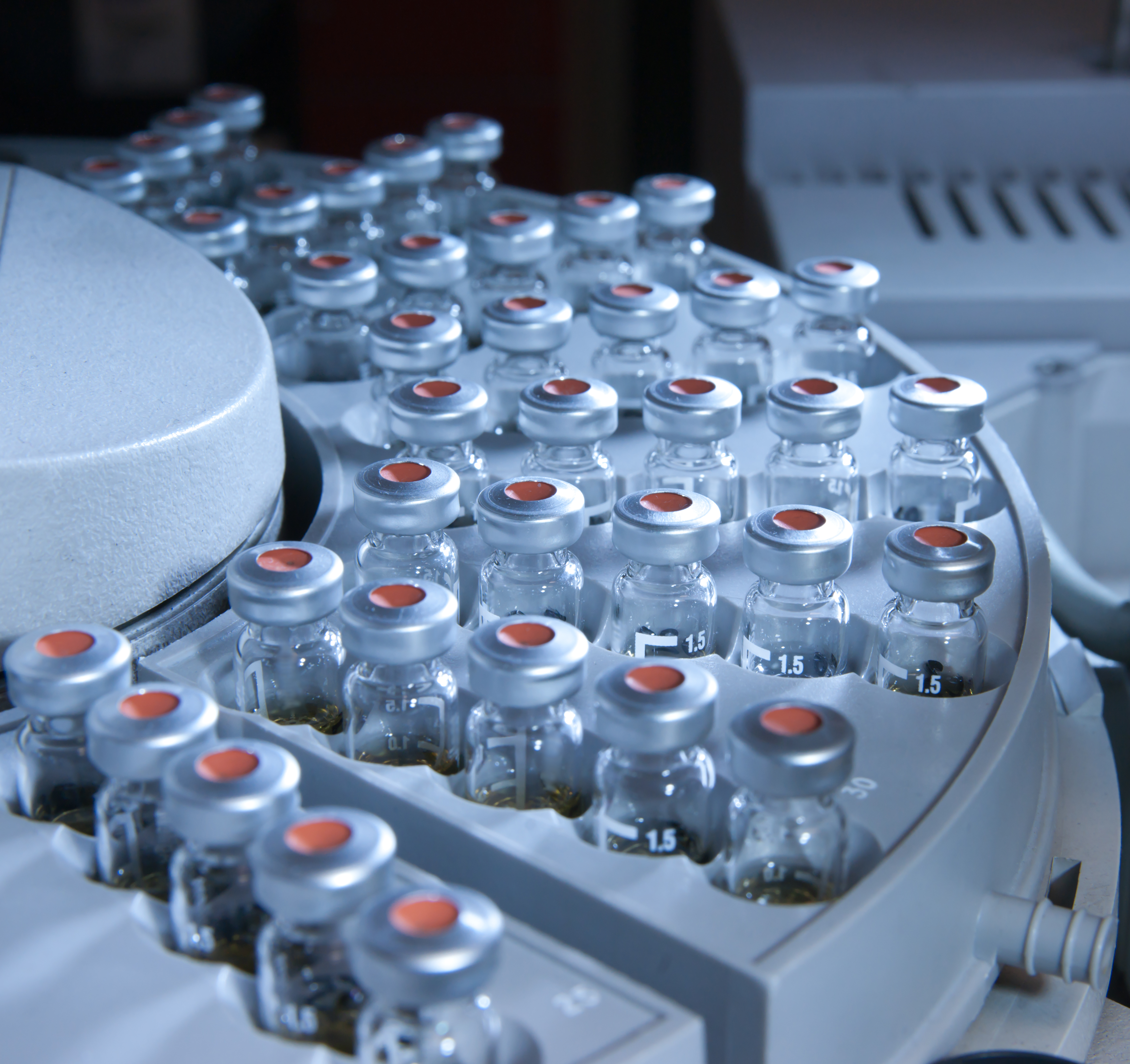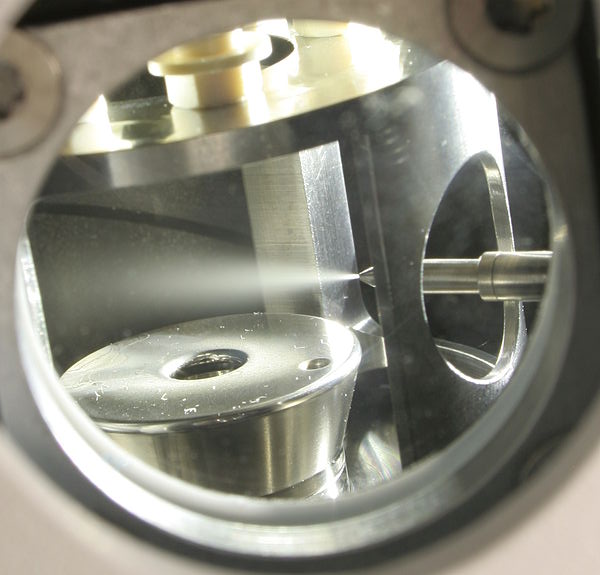LC-MS

Liquid chromatography mass spectrometry analysis
Liquid chromatography mass spectrometry (LC-MS) is a variant of high performance liquid chromatography (HPLC), and is a fundamental analytical technique used to separate complex mixtures of organic compounds. The incorporation of mass spectrometry allows for the structural analysis and trace quantitation (even in highly complex matrices) of a wide range of analytes, from small molecules, to peptides and proteins, to polymers. The technique relies on the principles of HPLC to separate mixtures with multiple components, while mass spectrometry provides molecular identity of individual components with high specificity and detection. LC-MS is used to analyze thermally labile compounds that would be destroyed by the high heat of GC-MS.
Typical analysis examples include:
- Drug delivery elution kinetics
- Trace compound determination in a biologically derived matrix
- Repeat unit analysis for polymer identification
- Protein/peptide identification
- Polymer molecular weight and fragmentation pattern analysis for end group analysis
- Oligomeric identification and quantitation
LC-MS Applications
- Structural analysis and molecular weight determination of polymers and oligomers
- Polymer additive analysis
- Analysis of polymer degradation products
- Deformulation of polymer based compositions
- Chemical residue analysis - root cause analysis of contamination
- Drug release profiles from drug /medical device combination product
- API purity and stability assessment
- Residual monomer analysis
- Excipient characterization
- Lot comparison, resin equivalency, good/bad comparison
- Trace impurity/contaminant characterization
- Extractables and leachables
- Cleaning validation
